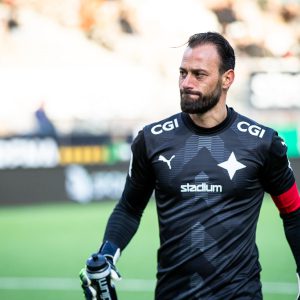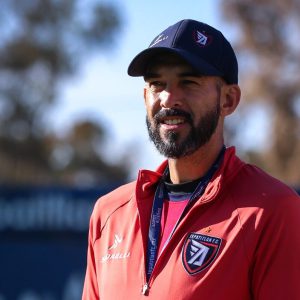

Winter transfer window: the decisive role of football agents
Immediately after this exciting 2022 Winter transfer window, Soccer HUB took the opportunity to speak with Fábio Torres (Sports Manager at Team of Future), Marcelo Robalinho (CEO of Think Ball & Sports Consulting), and Raquel Sampaio (CEO of Teammate Football Management) about how the preparation of this transfer market was carried out in their different companies, how they dealt with the deadline day, their dynamics and their most relevant deals.
Read their testimonies below.
Winter transfer window preparation
Fábio Torres: “We usually say – and it is true – that one transfer window begins when the other ends. This one started to be prepared in September when the main window of our activity here in Europe – the summer window – came to an end”.
There is still some distance between September and January, but clubs that do their work properly are usually ready to prepare it.
Marcelo Robalinho: “Usually, we prepare this transfer window six months to a year in advance. In the last two years, the COVID-19 pandemic established distinct market dynamics. Most clubs are waiting for as much information as possible to know when to invest and move within the market. The last windows have been complicated. We work very actively and are constantly receiving scouts and traveling abroad. In these last years, that has ended up being greatly hampered by the pandemic constraints”.
Raquel Sampaio: “I look at an agency the same way I look at a football club. The timings are very similar – or at least they should be. This January transfer window was already being prepared since the summer, and it was quite interesting for us. We managed to do a little bit of everything: renewals, transfers, loans, and intermediation. We want to position ourselves as a premium agency in women’s football. We do not want to be an agency that represents many players because we want to offer a differentiated service from what other agencies are offering in the Portuguese market”.
Dynamics
Fábio Torres: “The people involved are the ones connected to professional football, with the support of the scouting staff and the owner of the company – Bruno Carvalho – who is the face and brain of almost all operations. In my case, I mostly deal with the commercial side of the business: contacting clubs, analyzing their needs, and examining what we have inwards to offer. As the window arrives, you comprehend what a club wants in particular. I do not like it when a club says “I need a right-back!”. That is too vague. Some clubs explain in detail what they want for the position and others that do not. It depends on the relationship you have with a person or club”.
Marcelo Robalinho: “We seek to give the player a high range of services. Our work is much broader than what FIFA determines and we end up dealing with issues related to the player’s daily life – their image, social media, press advisory, etc. For that reason, I have a team of 20 people, each in their own area of expertise. It is an exhausting job because we deal with different cultures, time zones, expectations, financial crises that each country is going through… Sometimes we work on four, five, or six transfers and they do not happen for external reasons”.
It is critical that people have this understanding that football is not just what we see on the pitch: it is necessary to understand the entire economic and geopolitical context in order to be able to advise our clients properly
Raquel Sampaio: “Some deals can be done in 24 hours. Others can last two, three, or four months. In this window, there were renewals that lasted almost four months at the negotiation stage. The negotiations started in September, ended in December, and the contract was finally signed in January. We are all a little bit dependent on each other. When a club is in a rush, maybe the deal will be carried out more quickly. If a does not have a certain player as an immediate priority, maybe they extend a little longer in time. As there are several parties involved and agendas to reconcile, things can take a little longer or less”.
Deadline day
Fábio Torres: “The deadline day is always a box full of surprises. You have to set the players you have to offer and be prepared, knowing beforehand that they may or may not join the clubs. Frequently, clubs are not expecting to sell certain players and then have to replace them quickly. It is the day you have to be connected from early morning until the markets close. Players are people. Each one deals with the deadline day in their own way”.
Overall, I think players handle it well since we did not set false expectations on anyone. If there is no chance [of a tranfer], we will not say there is. It turns out to be a natural process, and they are aware of what may or may not happen.
Marcelo Robalinho: “Since we work in a more proactive way, we end up not leaving for the deadline day situations that we can perfectly control. In this window, I can mention the example of Talys Oliveira, a left-back who belongs to NK Osijek, from Croatia. Osijek’s owners are Hungarian and they have a great relationship with Budapest Honvéde. Thales was loaned at the beginning of the season to Budapest Honvéde and ended up playing just a few minutes. So, we had to intercede. Recently, he was loaned to Pafos FC, in Cyprus. Since he arrived, he has been in the starting lineup in every single match. We always try to be very aware of the market’s situation”.
Main deals
Fábio Torres: “Tony Vilhena is an important case for us, as a company, and the player, because he has been waiting for it for many years. Tony Vilhena is a player who arose at a very young age in Feyenoord, playing in the first team at 17. At that time, he had all the top European clubs interested in him. He had the misfortune of his mother dying at that period. Things did not happen, and he preferred to stay in the Nederlands. Afterward, he ended up going to Krasnodar as a free agent. Tony was in Russia for a few years and wished to play in a Big Five league. The contacts started in the summer, Espanyol remained interested, and in January that was finally possible. Paulo Sousa’s move to Flamengo had a great impact. He was in the Polish national team and joined a giant club. I think these were perhaps the two most notable deals. We also have our company in Colombia, Brazil, and the USA. We brought a player from Colombia to the Major League Soccer [Jhojan Valencia], which was also good for us as it is a league that is growing. The arrival of Tiago Coser to SL Benfica was also a process of months, with advances and setbacks, and luckily the deal was still possible. It turned out to be a positive market for us”.
Marcelo Robalinho: “This market followed a trend that has emerged since the beginning of the global pandemic and, therefore, there were not so many transfers. We can mention the example of Newcastle, who came in with an appetite and had to strengthen the team to avoid relegation. Those truly impactful moves in the market were not numerous. Let us see if things get better in the summer”
Raquel Sampaio: “I have to highlight Clarinha. She was the youngest player ever in Portugal to sign a professional contract. Currently, Clarinha plays in the U19 at SL Benfica and is not yet incorporated into the first team. I think she can also be a role model for other girls”.
The kick-off has already been given and I believe that employment contracts with 16-year-old athletes will become something more constant. Things are evolving and growing very quickly in women’s football and no one will want to be left behind.
“I also stress Mariana Jaleca, who joined Fenerbahçe, a Turkish giant that also opened doors to women’s football this year, with sensational conditions. An initial project always has growing pains, which is normal. This leap for Mariana was very significant and it was her second professional contract. Then, I would also emphasize some intermediation deals performed in clubs such as SL Benfica and Sporting CP”.
Categories
Latest Courses
-
9 Lessons
-
1 Lesson
-
6 Lessons
You May Also Like
- Blog
- August 1, 2022
- Blog
- June 3, 2022
- Blog
- May 27, 2022
Developed by Brandit Digital Media Services.





